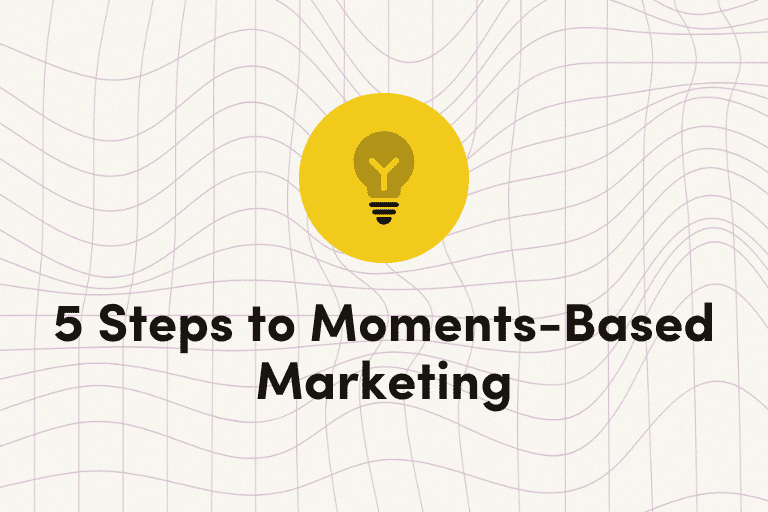As with any emerging technology, there always seems to be debate and discourse about how people feel about its use—more so than quantitative data about how people are actually using it. And that gap is particularly evident when it comes to the media frenzy around generative AI, or GenAI.
In our latest research with Wakefield Research published by Ad Age, we’re bridging this gap and combating any misconceptions with an exclusive look at how marketers are using AI technologies. In this four-part blog series, we’ll share insights about all types of AI tools, starting today with GenAI.
And if you’re looking for fewer hot takes and more hard facts, then download the full AI report on Ad Age.
What is Generative AI?
As Ad Age explains in the report, “generative AI represents a subset of the automation category focused on content creation.” These tools use natural language processing (NLP) models to generate copy or imagery that can be used for marketing campaigns, hence the name.
Lynn Girotto, CMO of Vimeo, discusses the importance GenAI plays in marketing personalization:
“Personalization in marketing has evolved from having the right data and technology to crafting the right message at the right place and time. I’m a big believer that AI, especially generative AI, will bring us closer to realizing this vision of deeper personalization.”
Testing and learning are critical components of GenAI, as marketers can craft more options for email subject lines, text messages, and other elements of campaign copy to experiment with. This is even more true at scale: in record time, GenAI can spark marketers’ creativity and unlock their writer’s block so they can stay competitive and drive better results.
What Marketers Think About Generative AI
In our survey of 1,200 marketers, the data was clear, according to Ad Age:
“Today’s marketers increasingly recognize AI’s ability to do things for them, not as a replacement for them, and are much less likely to view AI as a threat to their careers. The majority of marketers now believe AI will increase future job opportunities and allow them to perform their current roles better.”
Specifically, these were the survey results that stood out the most:
- 91% of marketers are already using AI in their jobs.
- 62% use AI both for their job and outside their job.
- 49% believe generative AI will make their jobs easier.


Ashley Kramer, chief marketing and strategy officer at GitLab, notes that Iterable’s research validates what she’s seeing with her audience of software developers:
“Companies that use AI to automate inefficient tasks will free up talent to focus on more creative endeavors, leading to improved productivity, innovation, and a competitive advantage.”
As the data shows, that competitive advantage doesn’t just apply to a brand’s ability to succeed in a crowded marketplace. It also applies to a marketer’s ability to succeed in a rapidly evolving job market.
GenAI’s Advantages for Marketers
The rapid acceleration of AI adoption doesn’t mean marketers don’t have legitimate concerns: nearly 9 in 10 expressed concerns that “I will have to learn how to use AI to maintain my value as a marketer.”
But the impact of GenAI’s success with tools like ChatGPT has brought opportunities for marketers to reduce the need for “do” time and increase their “think” time.
When marketers were asked what draws them to use AI at their jobs, these were the top responses:
- 47% the ability to work efficiently
- 45% increasing personal skill sets
- 43% fostering more accurate work


These advantages contribute to over two-thirds of marketers (67%) seeing AI as a transformative tech revolution, not just a tool. The key for marketing organizations, both big and small, will be making sure their teams have proper training and access to the right AI tools.
And that’s where Iterable can help.
Leveraging GenAI with Iterable’s Copy Assist
Modern customer communication platforms are already harnessing the power of generative AI, and Iterable is no exception. Iterable’s Copy Assist is designed to provide alternative text suggestions for short message copy, like email subject lines, SMS messages, and push notifications.
Last fall, we announced Copy Assist’s integration within Iterable Experiments, so marketers can test which messages will perform better with their audiences. With a centralized space to review and group past experiments, marketing teams can review their experiments’ performance and automatically create new, optimized ones based on previous results.
You can learn about all of the features in Iterable’s AI Suite and download the full Ad Age report for even more insights about AI-powered marketing. Plus, stay tuned for the deep dive into all things AI automation and optimization.
Ready to take the next step on your generative AI journey? Reach out and schedule a custom demo of Iterable AI today.
































